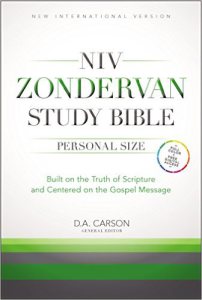Authentic and Counterfeit Christianity
 If you have been united to Christ, Jesus has broken the curse and brought us into fellowship with God. The bondage of sin has been broken. When as Christians we sin, we are acting in unbelief - not believing that our actions are being openly beheld by God and others. It is to forget our identity and the gift of the Holy Spirit and to live as if we were still under sin's dominion. Living genuinely and transparently, then, means by the grace of God, to consciously live every moment with the belief that all of our thoughts and life are truly open before God and man. It means to walk in the light (1 John 1:7), to have nothing hidden, but for your life to be laid bare before all (Heb. 4:11-13) So when we do sin, we don't hide it but confess it (1 John 2:1),we judge ourselves and grieve over it (1 Cor 11:31-32). And then we keep moving toward the goal (Phil 3:14). knowing that we are clean and forgiven in Christ (1 John 1:9).
If you have been united to Christ, Jesus has broken the curse and brought us into fellowship with God. The bondage of sin has been broken. When as Christians we sin, we are acting in unbelief - not believing that our actions are being openly beheld by God and others. It is to forget our identity and the gift of the Holy Spirit and to live as if we were still under sin's dominion. Living genuinely and transparently, then, means by the grace of God, to consciously live every moment with the belief that all of our thoughts and life are truly open before God and man. It means to walk in the light (1 John 1:7), to have nothing hidden, but for your life to be laid bare before all (Heb. 4:11-13) So when we do sin, we don't hide it but confess it (1 John 2:1),we judge ourselves and grieve over it (1 Cor 11:31-32). And then we keep moving toward the goal (Phil 3:14). knowing that we are clean and forgiven in Christ (1 John 1:9).

 By Cameron Buettel
By Cameron Buettel As Christians living in this increasingly secular age, we’re called to graciously endure suffering from unbelievers when it comes our way. We never go looking for trouble or wish to partake in foolish quarrels, because we’re instructed “to put no obstacle in anyone’s way” to come to Christ [2 Cor. 6:3].
As Christians living in this increasingly secular age, we’re called to graciously endure suffering from unbelievers when it comes our way. We never go looking for trouble or wish to partake in foolish quarrels, because we’re instructed “to put no obstacle in anyone’s way” to come to Christ [2 Cor. 6:3]. 
 The creeds and confessions expand and develop over the entire existence of the church. A creed is a concise declaration or confession of beliefs that outlines the essential truths of the Christian faith. They progress from simple statements in the bible, to brief statements like the Nicene Creed, to complex confessions like the Westminster Confession of Faith. The following are hand selected among the thousands of creeds that have been written.
The creeds and confessions expand and develop over the entire existence of the church. A creed is a concise declaration or confession of beliefs that outlines the essential truths of the Christian faith. They progress from simple statements in the bible, to brief statements like the Nicene Creed, to complex confessions like the Westminster Confession of Faith. The following are hand selected among the thousands of creeds that have been written. The
The  Comment: The bible inspires unwarranted feelings of moral superiority and may be used to excuse obnoxious and malicious behavior of its readers
Comment: The bible inspires unwarranted feelings of moral superiority and may be used to excuse obnoxious and malicious behavior of its readers Here is a quick sweeping picture of the history of redemption.
Here is a quick sweeping picture of the history of redemption.  We should never cease speaking moral truth prophetically into the culture(s) in which we live ... proclaiming God's standard of right and wrong to which all people's conscience already bears witness. But we must remember that even if you were to persuade a few people of the truth of your moral cause you have still done nothing to advance the kingdom of God unless you proclaim the gospel with even greater clarity. Apart from grace it is the natural state of man to love darkness and hate the light (John 3:19, 20) so having them exchange a specific sin for some kind of moralism has done nothing beneficial, in any redemptive sense, for their soul. You have merely exchanged one sin for another. No amount of moral agreement with you or behavior modification will save their soul.
We should never cease speaking moral truth prophetically into the culture(s) in which we live ... proclaiming God's standard of right and wrong to which all people's conscience already bears witness. But we must remember that even if you were to persuade a few people of the truth of your moral cause you have still done nothing to advance the kingdom of God unless you proclaim the gospel with even greater clarity. Apart from grace it is the natural state of man to love darkness and hate the light (John 3:19, 20) so having them exchange a specific sin for some kind of moralism has done nothing beneficial, in any redemptive sense, for their soul. You have merely exchanged one sin for another. No amount of moral agreement with you or behavior modification will save their soul.